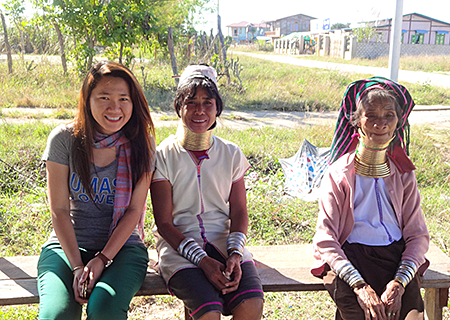update:June 28, 2024
A special interview for the Toyota Foundation’s 50th year anniversary project
A journey of Cambodia’s Women Peace Makers:From cultivating empathy to empowering youth for the future
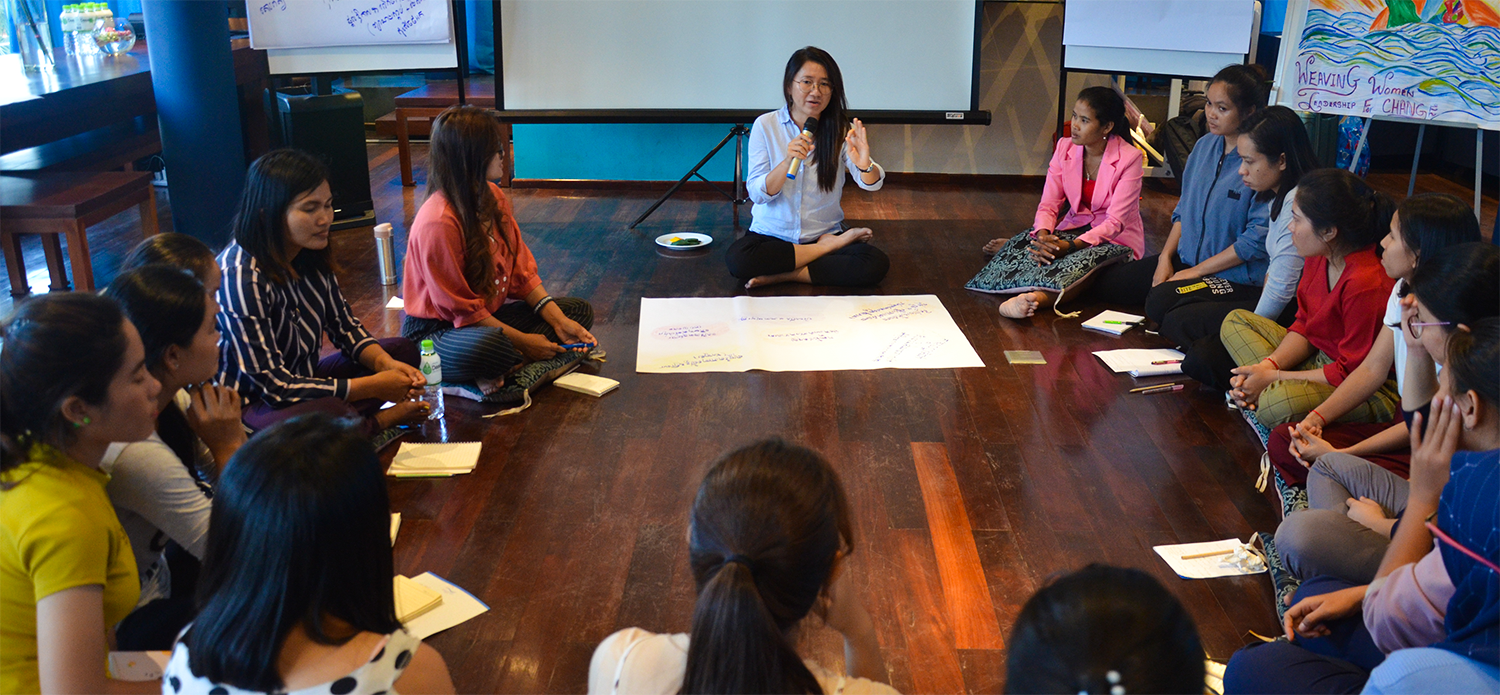
Interviewer: Hideo Tone
Writer: Naoto Okamura
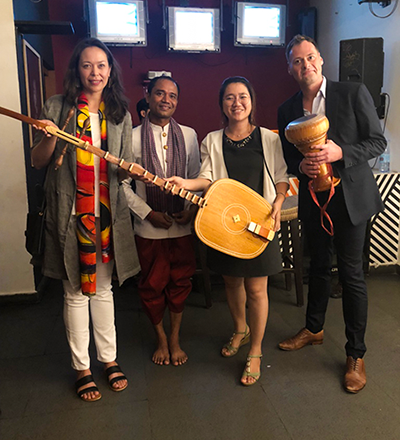
For Cambodia-native Ms. Suyheang Kry and Canada-born Mr. Raymond Hyma, peacebuilding and conflict transformation have been the main focus of their lives, personally and professionally. After their first encounter meeting each other 10 years ago working to monitor Myanmar’s peace process, they have since come to work together tirelessly to spearhead various peace initiatives at a civil society organization based in Phnom Penh, known as Women Peace Makers (WPM), seeking to address issues related to gender equality and peacebuilding that ensure the inclusion of socially marginalized groups in Southeast Asia.
In fiscal 2018, the two peace practitioners launched the grant-awarded project “Understanding ‘Us’ to know ‘Them’,” an undertaking supported by the Toyota Foundation, designed to cultivate empathy toward and among ethnic minorities in Cambodia, Vietnam, and Thailand through WPM’s proprietary research approach called Facilitative Listening Design (FLD). “What if we looked at minorities across the border that Cambodians could relate to? That’s how the Toyota project began with this idea in mind. Let’s explore that in a different way,” said Ms. Kry.
In an interview conducted at their office in Cambodia’s capital, Ms. Kry and Mr. Hyma talked about their life journeys, challenges facing a civil society organization like WPM, and their dreams for the future.
Details
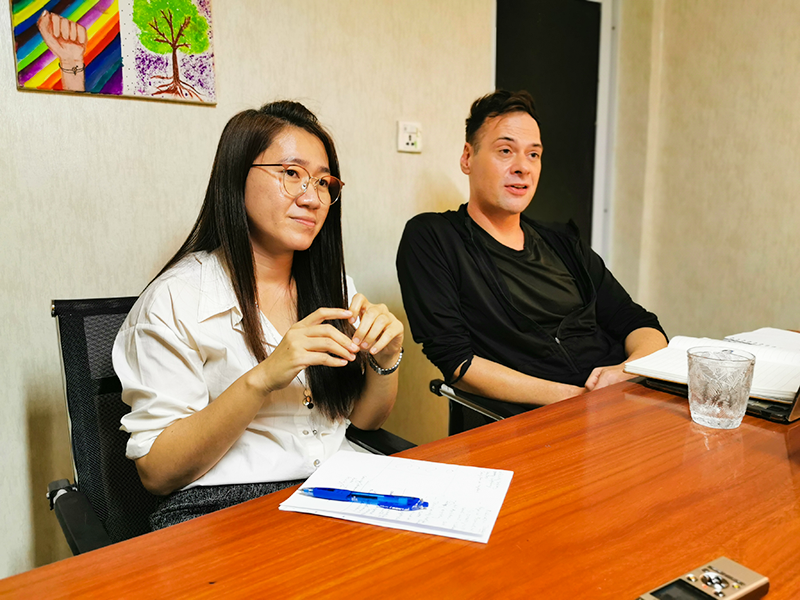
- Program
- 2018 International Grant Program
- Project Title
- Understanding "Us" to know "Them": Employing Facilitative Listening Design regionally to build empathy towards the Other through understanding those we can relate to
- Grant Number
- D18-N-0119

- Grant Period
- November 1, 2018 to October 31, 2020
- Main area of activity
- Cambodia
- Abstract of Project Proposal
- Understanding “Us” to know “Them” employs a community-based action approach developed by Women Peace Makers in Cambodia to collect information and subsequently foster better mutual understanding and empathy towards others. By training Khmer minority participants from outside of Cambodia to use Facilitative Listening Design (FLD) to gather opinions and perceptions within their communities, they become equipped to provide a new understanding of the strengths and challenges in their minority contexts. Then, Cambodian participants also take the same approach with minorities in Cambodia. This can provide a range of data for analysis and comparison of two different minority settings. Bringing the whole groups together shows that "the Other" inside Cambodia has similar experiences and perceptions as Khmer minorities in Vietnam and Thailand. The ultimate goal is to understand the experience of other minority groups by understanding "us" in a more familiar context.
Her journey: aspiring to become a peacemaker
Ms. Kry, the executive director of WPM, said her interest in peacebuilding and feminism can be traced back to her upbringing in a country that was still reeling from the deep scars of the genocide committed under the Khmer Rouge communist regime (1975 to 1979). “I was born eight years after the Khmer Rouge regime which ended in January 1979. I grew up learning very little to nothing about the Khmer Rouge regime. My family, relatives, or even teachers would not dare to talk about it in details back then. This recent history was not part of the school curriculum, either. And that's why I couldn't understand why and how my parents had gone through,” she said.
Things started to change in the 1990s, with the Paris Peace Agreement to end the devastating conflict being signed in 1991. To heal the emotional wounds of the Cambodian people and put the darkest chapter of its history behind, Cambodia launched a hybrid tribunal in 2007 to bring the senior Khmer Rouge leaders to justice, after almost a decade of negotiation with the United Nations. Despite her parents’ reluctance to talk about that conflict period, her curiosity grew to know more about what her they had actually undergone. Armed with that curiosity, she volunteered with the Documentation Center of Cambodia, an organization dedicated to document and search for truth and justice during the Khmer Rouge period. That was when she got a chance to write her own family history. “For the first time, I got to listen to my parents’ life during the Khmer Rouge regime in great details,” said Ms. Kry.
Talks with her parents revealed the hidden part of her family’s traumatic past; for the first time she learned that she actually had another big brother who died at age two due to a lack of medicine for diarrhea. One of her uncles was buried alive and her grandfather passed away just a few days before the Khmer Rouge got ousted. It took her months to get her parents to tell her in such great details as her mother could not control her emotion. “Yet, as she continued to share that story for a number of times, I noticed that she started to be able to calm down and told me about some good memory of her life during that time instead. I realized talking is indeed a healing.” she said. “So, that is the beginning of my curiosity and interest in peace and conflict studies.”
Afterwards, she had the chance to go around Cambodia to talk with both perpetrators and victims, and came to realize that it was not at all easy to draw a clear line between the two camps of people because “the entire country was suffering,” she said. These experiences eventually steered her toward pursuing peace and conflict studies for her Master’s degree in the United States.
His journey: from Canada to Cambodia in search of meaningful participation
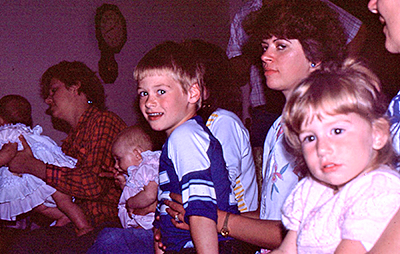
Growing up in the 1980s, Mr. Hyma was in search of his own identity as a young gay adolescent in relatively hostile times. He had a hard time understanding why people seemed to hate him, wondering whether people discriminated against him because of the way he talked or behaved which was often seen as in opposition to how a boy should act. “I was always asking why. That stayed with me throughout life as I saw more discrimination against other groups of people. It was hard for me to relate to how people can just generalize a huge group without knowing them,” he said.
He then went on to study international development in university, and upon graduation started working in public service as well as at NGOs. But he witnessed conflicts arising in all the places that he had been involved. Working on global issues about poverty and exclusion, but from his comfortable offices in Ottawa or Toronto, Canada, attending meetings abroad, he began to feel geographically and thematically detached from the work he was so focused on. In 2013, he decided to accept an opportunity with a Canadian organization seeking support in Cambodia. “I need to go somewhere. I ended up going to Cambodia,” he said.
As the years passed, Mr. Hyma came to see the civil war-torn nation as “a very complex country about peace and conflict.” That triggered a shift in his focus from development to conflict transformation and peace and allowed him to look at Cambodia from a different perspective. Despite what transpired four decades ago, rather than solely viewing the tragic and unfathomable history as the defining characteristic of the country and the people, he began to focus just as much on the resilience and level of peace in Cambodian society today – a significant center point and the grounding in his practice.
FLD for empathy building
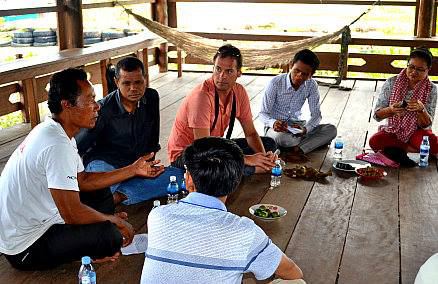
In the early 2010s, Cambodia saw massive street protests against the government for the first time ever, with tens of thousands of people taking to the streets and demanding change. Seeing ethnic minority Vietnamese being targeted in communal violence, as peacebuilding practitioners, Ms. Kry and Mr. Hyma began discussing ways to bring together their experiences overseas and their academic expertise in peacebuilding and conflict transformation, seeking to put all that into practice on the ground. Their intent was to help find more common ground and cultivate empathy among different ethnic groups in Cambodia. “To ensure a ‘Never Again’ of such genocide and mass atrocity, we need to find ways to celebrate our diversity and not just coexistence. That is when we started having for the first time what we would call later Facilitative Listening Design or FLD,” Ms. Kry said.
At the time, however, negative sentiment toward the Vietnamese minority ran deep among many mainstream Khmer Cambodian people. The two found it rather dangerous to conduct an empathy-fostering project between Khmer majority and Vietnamese minority groups.
Instead, Ms. Kry and Mr. Hyma decided to take an inter-ethnic approach in looking at different groups of people across national borders; “By doing that, we took the pressure off, so we were able to talk about it in an easier way,” he said. “What if we looked at minorities across the border that Cambodians could relate to… If we talk about it mixed with different groups, we are talking about minorities rather than just spotlighting Khmer versus Vietnamese.”
The whole idea of this inter-ethnic approach, Ms. Kry argued, was to ask how mainstream Khmer Cambodians would feel about a Khmer minority group in another country and how the Khmer Cambodian participants would think about ethnic minorities in their own country. “What if we get mainstream Khmer Cambodians to look at Khmer minorities in other countries, such as in neighboring Thailand and Vietnam. And we ask the question ‘What about Vietnamese here?’ This will make people think. That is why we name it ‘Understanding Us to Know Them’,” she said. To his surprise, this inter-ethnic, regional approach proved to be successful. “Wow, this really works. We are having a conversation we have never been able to have,” said Mr. Hyma.
FLD perfect fit for the Toyota Foundation’s grant title
Ms. Kry and Mr. Hyma felt their project was ideal for the Toyota Foundation’s grant program -- Cultivating Empathy Through Learning from Our Neighbors: Practitioners' Exchange on Common Issues in Asia. “That was the title of your call. At the time, I thought it exactly fits,” Ms. Kry said. “We want to also touch the heart of the mainstream people. That’s why I think we came across this concept of cultivating empathy and learning from the neighbor. Which is the Toyota grant. This is a great opportunity. So, we were trying to apply.”
They also attributed the FLD project’s success to the fact that the Toyota Foundation was not so institutional in dealing with partner organizations. This is partly because of the sensitive nature of the FLD project involving ethnic minorities in local communities. They felt that the administrative compliancy side of things at more institutionalized organizations would have made it difficult for the complex and sensitive kind of work they were engaging in. “You cannot do this type of sensitive work,” Ms. Kry said. “It is really interesting to have this opportunity. I think that is because of the way of working at the Toyota Foundation.”
What’s more, they highlighted the FLD’s “Understanding ‘Us’ to Know ‘Them’” approach can be applied to other countries including Japan. When it comes to the issue of ethnic minorities, Japan is indeed no exception. There are a number of ethnic Japanese communities spread across North and South America; Japanese-Americans and Brazilians of Japanese descent to name a few. They have been living as a minority group in their respective countries for generations. In the meantime, Japan is now home to growing ranks of foreign workers, many of whom are Japanese descendants from Brazil and other Latin America countries. FLD could also serve as a tool to help Japanese to resonate with these people. “Do you have empathy for them? Do you want them to still speak Japanese after 100 years? Would you feel proud of that?” Mr. Hyma asked. “We can actually take these lessons and make some connection to that other group… I think our project gave us the language and the experience to be able to try to get people to imagine.”
Women Peace Makers’ journey
WPM began as a women-led peace building network founded in 2000, two years after Cambodia finally saw an end to decades of fighting. At the time, Cambodian youth groups started addressing issues, particularly gender issues, because more than 60% of the civil war survivors were women. Although women greatly contributed to the rebuilding of the country, not a single woman was represented at the negotiation table in the 1991 Peace Agreement. Given these circumstances, WPM was created to prevent violence and promote more women’s leadership and meaningful participation in the process and enjoyment of peace and development and became registered with the Ministry of Interior in 2003 focusing on the intersection of gender and peacebuilding.
WPM has two main focuses: the gender and women’s issue program and the peace and conflict transformation program. When Ms. Kry took up the executive director post in July 2016, the organization had only four staff members working on a very grassroots level. Today, its staff count has grown to 28 with an annual budget over 18 times from when she started. She has exponentially grown the organization from its grassroots beginnings to a national hub for work on the intersection of gender and peace issues.
But that growth does not come without challenges. The biggest of which is how to ensure the sustainability of its work. For instance, Cambodia’s private sector shows a tendency to fund fewer sensitive initiatives and rather focuses on entrepreneurship, education, or clean energy, Ms. Kry said. So, funding from the local private sector does not go to community service organizations (CSOs) working on rights issues. “Even women’s rights is political and can be sensitive…In the context of Asia, not just Cambodia,” she said.
Moreover, funds to local CSOs are often given on a project basis with less focus on the wellbeing of the institution and human resources. Even though it is clear that for the project to be implemented well with impactful results, it needs human resources. Project-based funding means that when one project is done, those members involved will be gone as well, i.e., a loss of talent in WPM’s specialized fields. Therefore, they will need to work on numerous projects in order to sustain those talents and quality of work/expertise. Yet, this also meant the leadership will have to work more than double and compromise their wellbeing. These funding structures thus have a direct bearing on both attracting/sustaining talents and while upholding peacebuilding and feminist organizational core values at organizations such as WPM. “This is the real systematic challenge and requires systematic change in international development work” she said.
Therefore, she underscores the importance of supporting civil society organizations through not just a one-off project-based fund but also through core funding, a type of unrestricted financial contribution that covers basic “core” organizational and administrative costs, including office expenses, salaries of non-project staff, etc. “If you want to really support institutions, especially civil society organizations, it's not just about project based but about how you could also support them to grow stronger to become more resilient and innovative through unrestricted core funding” she said.
This is because she believes that securing a variety of funding sources is necessary for sustaining civil society organizations like WPM, which will in turn lend itself to keeping a more vibrant and more dynamic civic space for young generations. “As a CSO, we need to really think how we are going to adapt particularly in this very context of a shrinking civil space and shrinking resources,” Ms. Kry said. “It is not about growing bigger. It is about growing stronger from inside. For us, it is about how are we going to make an effective and efficient positive impact on the issue that we want to address with our creativities.”
Challenges during Covid
In early 2020, the Covid-19 pandemic spread across the world and indiscriminately hit countries, including Cambodia, Thailand, and Vietnam where FLD activities were conducted. WPM and its Toyota Foundation-granted project were severely affected as well. For instance, WPM organized an art exhibition as part of the FLD project in Phnom Penh in late February 2020, but it had to be closed in the first week of its opening due to the pandemic lockdown.
Moreover, some of their FLD participants lost their jobs, making it difficult for them to stay engaged. Indeed, the Covid-19 upset people’s priorities in life. It was all about survival. “People aren’t thinking now about cultivating empathy with their neighbors. They are thinking how to survive,” said Mr. Hyma.
Seen from a positive side, the pandemic proved to be a lesson in disguise. It helped them to see the importance of relationships. While it was difficult for them to keep the FLD participants engaged, they eventually came to the big question: who wants to be engaged and who no longer wants to or is unable to? “We can completely change everything. Thanks to the Toyota Foundation, we had the space to adapt and do something new,” Mr. Hyma said. “From our existing participants, who else wants to join, and then you see more people joining us.”
In addition, Ms. Kry stresses that openness would be one of the lessons from the pandemic; “I think how we navigate through these challenges is through openness. Being open to any possibility and also at the same time to any difficulty, challenges, and rejections. And then through that, one motives us to continue moving,” she said.
Next stage for WPM and FLD
In retrospect, they have learned from the experiences of the FLD participants – and in particular, that humanity is, after all, what connects people in the end. All humans have the need for safety, tradition, and culture, thereby developing a sense of belonging. FLD is designed in such a way as to allow people to listen and see things from the other side and cultivate empathy. “That is important. It really transcends all these borderlines, all the things that we call political or geographical. That is how we are connected as human beings. It touches everyone,” Ms. Kry said. “That is when we can transcend all this conflict… when we can connect human-to-human first. And then whatever differences we have, we can manage to address it in a nonviolent way.”
With an aim to carry a lot of these learnings from the FLD project, as peacebuilders and peace practitioners, Ms. Kry and Mr. Hyma are exploring what is next for WPM. And one of their focuses is on the issue of statelessness, a significant finding coming out of the Toyota-granted project in respect to one of the ethnic minority groups involved. “We are actually working on the statelessness issue in Cambodia,” Mr. Hyma said, adding that the issue is increasingly being talked about across the Asia-Pacific region. As such, WPM is collaborating with counterpart organizations in Indonesia, Nepal, and Australia to look at this issue from a regional perspective. “We are finding a new space where we can bring up this really important issue in Cambodia,” he said.
In fact, WPM got a second chance to hold the art exhibition from the FLD project which had been shut down early due to the pandemic, this time not in Phnom Penh but at Taylor’s University in Kuala Lumpur, Malaysia. In late February, the university hosted the 2024 World Conference on Statelessness in which over 400 people with lived and learned experience of statelessness gathered from around the world to share their knowledge, perspectives, ideas, and skills. “We actually held that same exhibition, and it was a huge success. So many people thought it was incredible,” Mr. Hyma said. “So, it feels very much like an extension.”
Dreams in their life journeys ahead
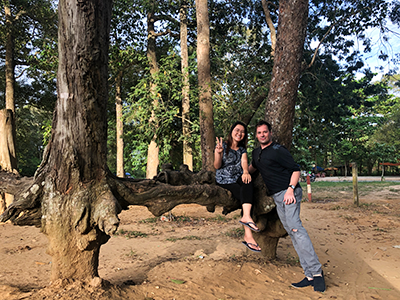
Looking ahead, they both have their own visions for the future of WPM.
Mr. Hyma, who is currently doing a PhD program, seeks to carve out a place for FLD in the world of academia. He believes that it is important to bring this type of research work into academic discussions. “It is not recognized as research in academia. So, I want to challenge that,” he said, hoping that others may find value in knowledge produced through FLD by community participants. “My dream is to continue doing this kind of work but also to bridge it into academia. When we publish the FLD book, Understanding ‘Us’ to Know ‘Them,’ we can then write a journal article about it…I would like that to have more interest and value in academia.”
On a personal level for Ms. Kry, her childhood dream was to be able to finish high school because she herself did not grow up in an educated family. Now that she has obtained not just a high school diploma but also a Master’s degree, she is acutely aware of the importance of education, especially for young women. “Thanks to my education, it allows me to be who I am today and I really believe in education,“ she said.
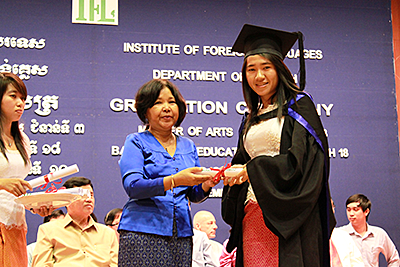
And she literally walks the talk; WPM starts to use its hard-earned general funds to provide scholarships to minority youth from rural areas giving them a chance to pursue their dream education. “Because education will change life,” said Ms. Kry.
When she decided to join WPM, she had the dream of bringing gender and peace together and exploring deeper inclusion around intersectionality and identity. With the support of Mr. Hyma throughout her journey at the organization, they have worked together to build upon their shared dream of making WPM one of the leading organizations that brings together gender equality and peacebuilding. After years of their hard-working journey together, they now see things changing little by little. “We have managed to literally push this forward because now people start talking about intersectionality and bringing minorities to the forefront of the policy making. But a lot of other work needs to be done. And we need everyone to take their parts in making this dream of ‘never again’ and ‘leave no one behind’ a reality in practice” Ms. Kry said.

